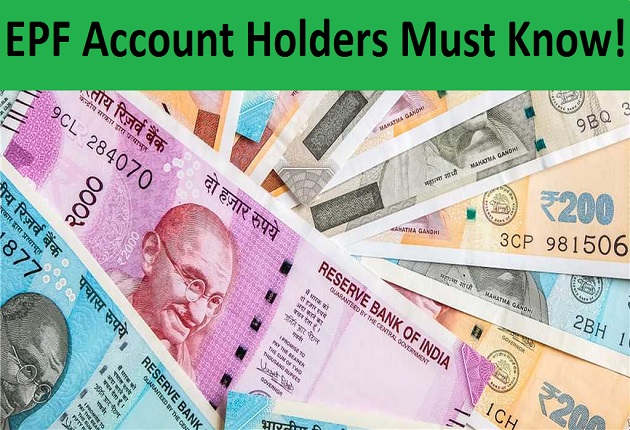You put your life’s hard earned money in this EPF and it happens many times that when you go to withdraw money, your tax is deducted on it. In such a situation, it is very important to know these rules related to tax otherwise your PF account money will be deducted.
Let us tell you that if an employee withdraws his PF (Provident Fund) before the period of 5 years, then he has to pay tax at the time of withdrawal of EPF, but, there are some conditions applicable with it, due to which you can become tax liability. Let us tell you about this rule in detail:
When did you withdraw money from EPF
According to tax expert Gauri Chadha, you should withdraw money from your EPF after 5 years. If you withdraw more than 50 thousand money before 5 years, then you have to pay 10% TDS on it.
If you have to avoid TDS and taxability then you have to keep your service for more than 5 years. If you withdraw money after 5 years, then no taxability comes on you.
Why do you think TDS?
Before withdrawing money before 5 years, the employer gets into income from salary and the employee who gets contribution gets into income from other sources and the interest earned by both of them is also taxable.
TDS will be saved after submitting this form
At the same time, if your income is less than 2.5 lakh and you have withdrawn money from PF, then you can submit Form 15GH, then your TDS will not be deducted.
Take care of these things:
- Tax on withdrawal of money from EPF account before 5 years
- 10% TDS on withdrawal of more than 50 thousand
- To avoid TDS, you should withdraw money from PF account after 5 years.
- Four components of contribution to PF
- Employee contribution, amount deposited through employee and interest on both
No tax when withdrawing money
- Employee’s job is gone
- Company in the event of closure
- On the death of impl
- PF transfer with joining
This is the rule to withdraw money from PF if there is no job
According to EPF rules, a member can withdraw 75% of the total amount deposited during the job after one month of leaving the job. If the person remains unemployed for more than two months, then he can withdraw the entire amount from the PF account.
On which occasions it is necessary to pay tax on PF
There are four components of contribution to PF – Employee contribution, amount deposited by the employer and interest on both. On three of these four, you have to pay tax – employer’s contribution, interest on your contribution and interest on employer’s contribution.
- If the amount is withdrawn from the PF account before five years, then you have to pay tax on it. In this case, you will have to pay tax on all four components of EPF. Tax on this amount will be calculated according to every year in which you have deposited the amount in the PF account.
- The tax calculation on investment in your PF is also dependent on whether you have availed of deduction under section 80C of Income Tax Act while filing ITR in that year.
According to the income tax law, if you deposit the amount in PF, then your contribution is exempted from income tax. Even if your income is zero at this time, you will still have to pay income tax on withdrawing funds from the PF account. The reason for this is that the year in which PF was contributed, your tax liability of you and your employer decreased.
(Source: hindi.news18.com)




 Ms Kalinga
Ms Kalinga